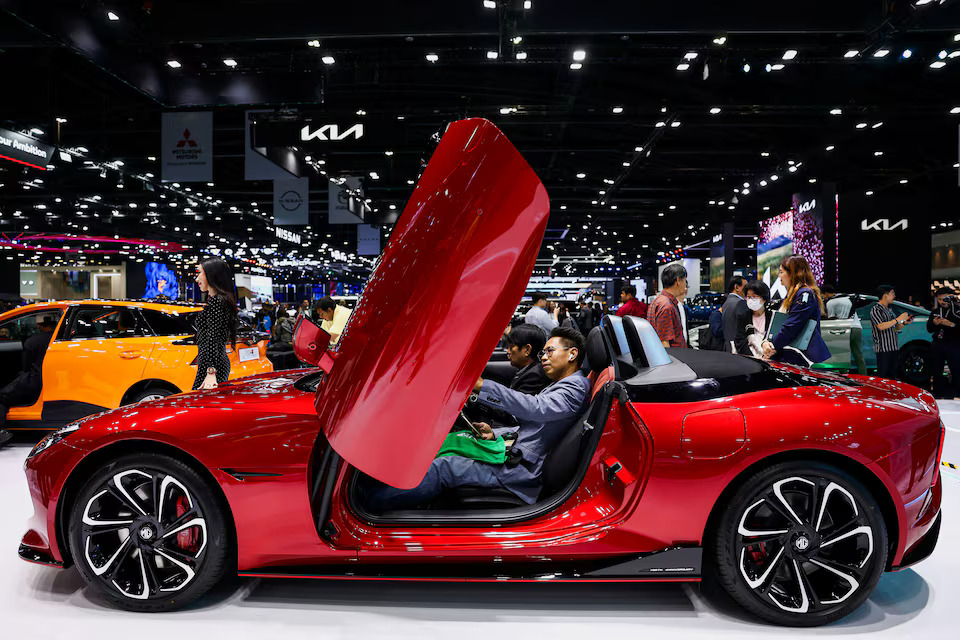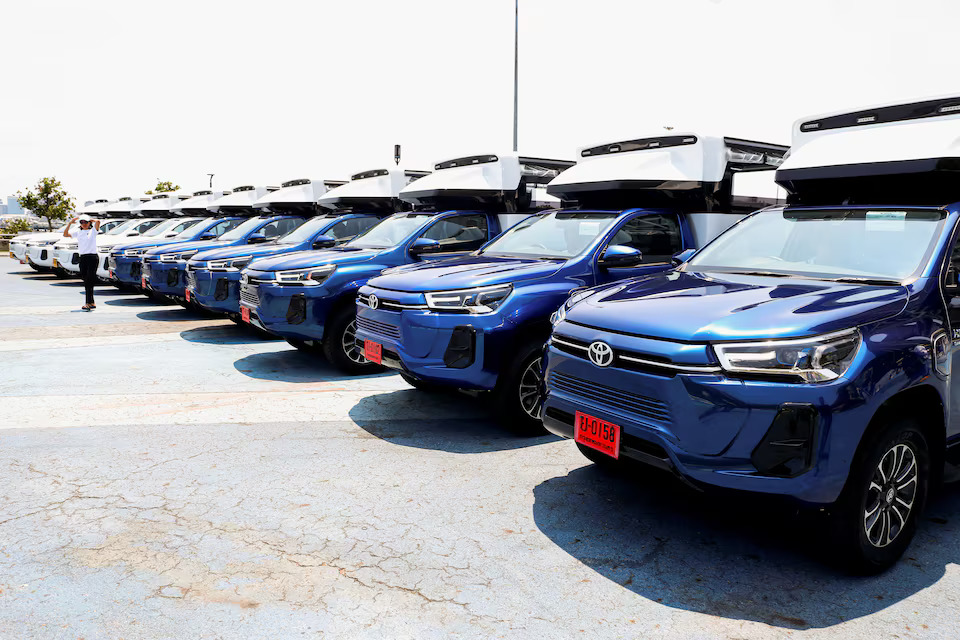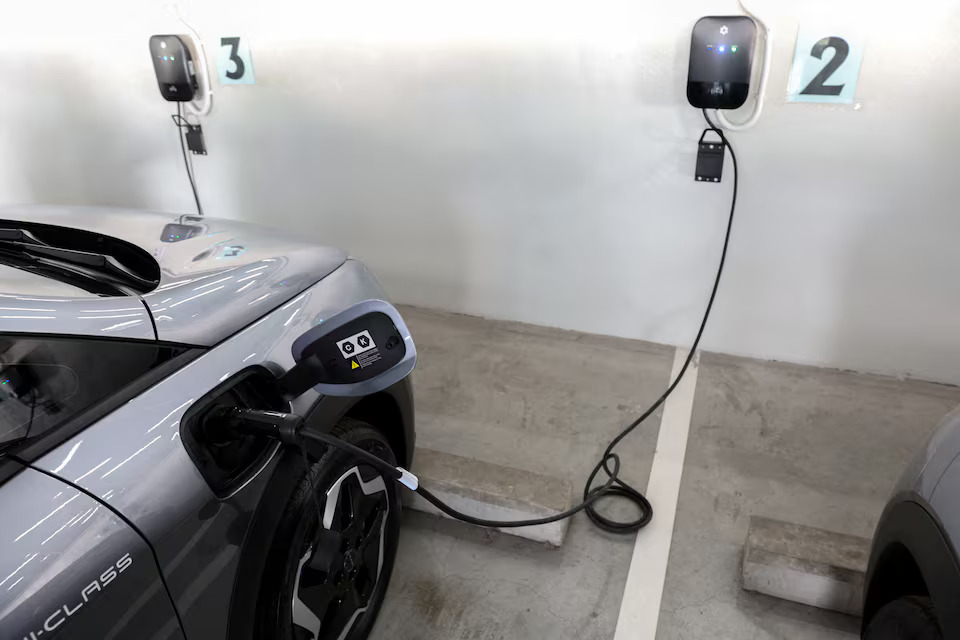BANGKOK -- Electric vehicle sales are surging in Southeast Asia, led by China's BYD and Vietnam's VinFast, eating into the internal combustion engine car market dominated by Japanese and Korean firms, Counterpoint Research said on Friday.
EV sales in the region more than doubled in the January to March quarter from a year before, according to the research firm. Sales of ICE cars, meanwhile, slid by seven percent.
"As Japanese and Korean automakers, who dominate conventional vehicle sales, lag in EV adoption, Chinese OEMs (original equipment manufacturers) are stepping in to fill the gap," said Counterpoint analyst Abhik Mukherjee.
"Over 70 percent of EV sales in the region are from Chinese brands, led by BYD," he said. In the first quarter of last year, 75 percent of all EVs sold in Southeast Asia were made by Chinese car makers.
|
|
| Fully-electric Toyota Hilux Revo pickup trucks as public transportation vehicles are seen in the Thai seaside town of Pattaya, Chonburi province, Thailand, April 25, 2024. Photo: Reuters |
Thailand, Southeast Asia's second-largest economy where Chinese car makers have committed more than $1.44 billion to set up new EV production facilities, is leading the charge.
The regional auto manufacturing hub where Japan's Toyota Motor and Honda Motor have a major presence accounted for 55 percent of all Southeast Asia's EV sales in the first quarter, with the segment growing 44 percent compared to last year.
"Vietnam saw an even more impressive growth, with BEV (battery electric vehicle) sales increasing by more than 400 percent, contributing to nearly 17 percent of regional sales," the research firm said.
Across the region, China's top-selling EV maker BYD maintained pole position, cornering 47 percent of the regional market leader, followed by Vietnam's VinFast.
|
|
| A BYD Dolphin EV car is charged at a BYD show room in Bangkok, Thailand, January 17, 2024. Photo: Reuters |
BYD has had early success in Southeast Asia, which is still a small EV market compared to other regions, on the back of distribution partnerships with large local conglomerates.
U.S. electric carmaker Tesla saw its market share in the region drop two percentage points to four percent in the first quarter, in spite of its sales growing 37 percent in the same period.
A number of Southeast Asian countries, including Thailand and Indonesia, have rolled out incentives to stimulate EV demand and attract new investments - a call answered by Chinese car makers locked in a bruising price competition at home.
"Southeast Asia is becoming a major expansion region for Chinese OEMs," Mukherjee said.





















































